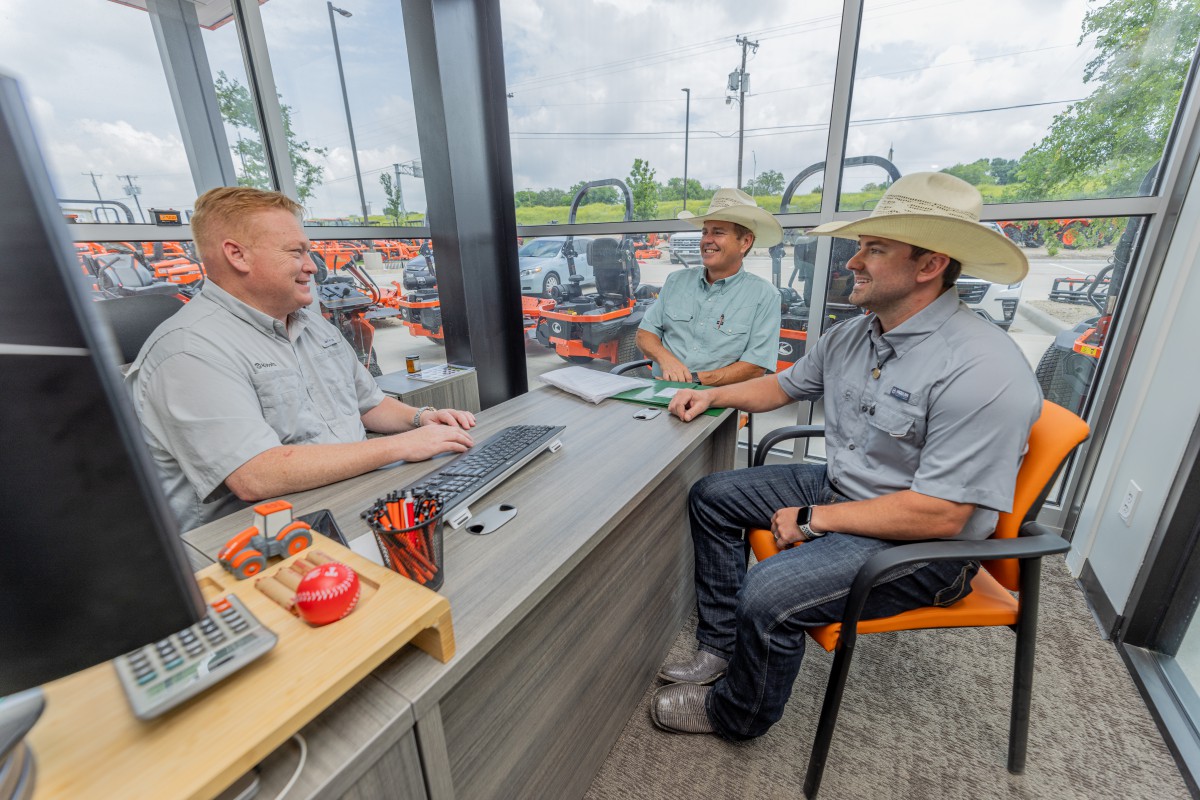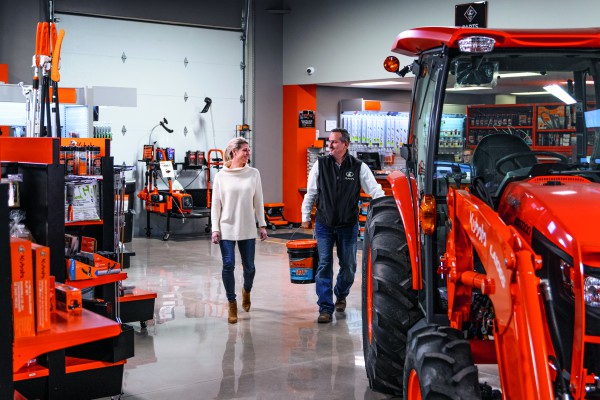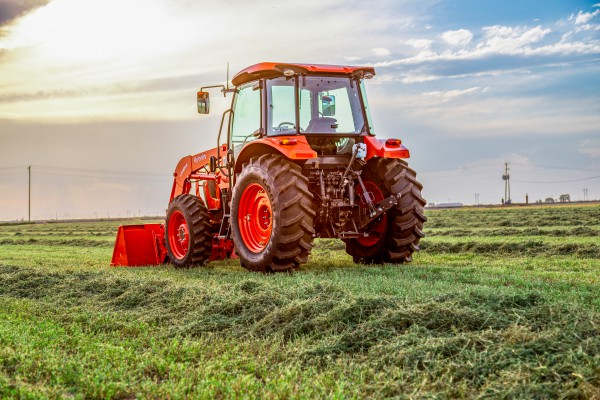
Kubota tractors face common issues like starting failures, overheating, and hydraulic malfunctions due to battery drain, clogged filters, or fluid contamination. Ignoring early signs can lead to costly repairs and reduced efficiency.
Regular maintenance, such as checking battery voltage, cleaning filters, and monitoring fluid levels, prevents most breakdowns. Hydraulic issues often result from low fluid or air in the system, while engine misfires can stem from dirty spark plugs or fuel contamination.
While many fixes are straightforward, complex electrical or transmission failures require professional repair. Understanding these problems ensures better performance and longevity for your Kubota tractor.
1. Tractor Won’t Start
Potential Causes:
-
Dead or weak battery
-
Clogged fuel filter
-
Faulty starter motor
-
Bad ignition switch
-
Dirty or faulty spark plugs
A Kubota tractor that won’t start is frustrating, especially during critical tasks. This issue often stems from power supply problems, fuel blockages, or ignition failures. Identifying the root cause is the first step toward a quick solution.
A dead or weak battery is the most common reason. Batteries lose charge over time, especially in cold weather. Corroded terminals or loose cables can also prevent proper power flow. Checking the battery should be the first troubleshooting step.
A clogged fuel filter restricts fuel flow to the engine. Over time, dirt and debris accumulate, reducing efficiency. If the tractor cranks but does not start, the fuel filter might need attention, which is included in Essential Maintenance Tips.
Starter motor failures can also prevent engine ignition. A worn-out starter won’t engage the flywheel properly. Sometimes, tapping the starter lightly can temporarily restore function, indicating the need for a replacement.
Faulty ignition switches disrupt the electrical circuit. If turning the key produces no response, the switch may be damaged. Wiring issues can also cause similar symptoms.
Dirty or faulty spark plugs fail to ignite fuel properly. Carbon buildup or wear can weaken the spark. Checking and replacing spark plugs is essential for smooth ignition, which ties into Maintain Your Hay and Farm Implements for overall equipment care.
Troubleshooting Steps:
-
Use a multimeter to check battery voltage. Below 12.6 volts means a weak battery.
-
Clean corroded battery terminals and tighten connections. Replace old or weak batteries.
-
Remove and inspect the fuel filter. Replace it if clogged.
-
Lightly tap the starter motor. If the tractor starts, the starter is faulty.
-
Pull out spark plugs. If dirty or damaged, replace them.
When to Seek Help:
If the tractor still won’t start, deeper electrical issues may exist. Faulty solenoids or wiring problems require a professional diagnosis. Seeking help from a Kubota tractor mechanic is the best course of action.
2. Engine Overheating
Potential Causes:
-
Low coolant levels
-
Clogged radiator
-
Faulty thermostat
-
Loose or damaged fan belt
-
Overworked engine due to excessive load
An overheating engine can cause severe damage if not addressed. High temperatures can lead to warped cylinder heads, blown gaskets, and reduced efficiency. Identifying the cause early prevents costly repairs.
Low coolant levels are a common reason for overheating. Coolant regulates engine temperature by dissipating heat. A leak or improper coolant mixture can cause rapid temperature spikes. Checking the coolant reservoir is the first step.
A clogged radiator restricts airflow and heat dissipation. Dust, dirt, and debris accumulate over time, blocking cooling fins. A dirty radiator reduces cooling efficiency, especially in dusty work environments.
A faulty thermostat can disrupt coolant circulation. If stuck closed, it prevents coolant from reaching the radiator, causing overheating. If stuck open, it can lead to inefficient heating in cold weather.
The fan belt drives the cooling fan and water pump. A loose or damaged belt reduces airflow and coolant circulation. Regular inspections ensure the belt remains tight and functional.
Overloading the engine increases heat production. Heavy attachments or excessive work strain the cooling system. Reducing the load helps manage temperature levels.
Troubleshooting Steps:
-
Check coolant levels and refill if necessary. Always use Kubota tractor-recommended coolant.
-
Clean radiator fins with compressed air or water to remove debris.
-
Inspect the thermostat. If stuck closed, replace it immediately.
-
Examine the fan belt for wear or looseness. Tighten or replace it if needed.
-
Adjust attachments or reduce workload to prevent excessive heat buildup.
When to Seek Help:
If overheating continues, internal cooling components may be damaged. A mechanic should inspect the water pump and cooling system for leaks, blockages, or malfunctions.
3. Engine Misfires or Runs Rough

Potential Causes:
-
Dirty air filter
-
Faulty spark plugs
-
Clogged fuel injectors
-
Water or debris in the fuel system
-
Worn-out fuel pump
An engine that misfires or runs rough affects performance and fuel efficiency. It can cause power loss, uneven idling, or excessive vibrations. Addressing the issue early prevents further damage.
A dirty air filter restricts airflow to the engine. Reduced oxygen levels lead to incomplete combustion, causing misfires. Dust and debris accumulate quickly, especially in dusty environments.
Faulty spark plugs fail to ignite fuel properly. Carbon buildup, wear, or incorrect gap settings reduce ignition efficiency. Regular inspections keep spark plugs functioning correctly.
Clogged fuel injectors disrupt fuel delivery. Over time, deposits form inside injectors, causing uneven fuel spray. This leads to poor combustion and rough idling. Using a fuel system cleaner can help.
Water or debris in the fuel system contaminates combustion. Bad fuel causes erratic performance, stalling, or difficulty starting. Draining the fuel tank and using clean, high-quality fuel prevents contamination.
A failing fuel pump cannot maintain proper pressure. If the pump weakens, the engine may hesitate or misfire under load. A mechanic should inspect persistent fuel pressure issues.
Troubleshooting Steps
-
Replace a dirty air filter for better airflow and combustion.
-
Inspect spark plugs for carbon buildup. Clean or replace damaged ones.
-
Use a fuel system cleaner to clear clogged injectors.
-
Drain contaminated fuel and refill with fresh, high-quality fuel.
-
Check the fuel pump for weak pressure. Replace it if failing.
When to Seek Help:
If misfires persist, a mechanic should test engine compression and fuel injection timing. Ignoring misfires can lead to more severe engine damage.
4. Hydraulic System Problems
Potential Causes:
-
Low or contaminated hydraulic fluid
-
Clogged hydraulic filter
-
Air in the hydraulic system
-
Worn-out hydraulic pump
-
Faulty control valves
Hydraulic systems power essential Kubota tractor functions, including lifting and steering. When the system weakens, implements may move slowly or stop functioning. Identifying the issue quickly ensures smooth operation.
Low or contaminated hydraulic fluid reduces system efficiency. Dirt, water, or degraded fluid can cause sluggish movement. Checking and replacing fluid regularly prevents major failures.
A clogged hydraulic filter blocks fluid flow. Over time, debris accumulates in the filter, reducing pressure. A restricted filter can overwork the pump and damage other components.
Air in the hydraulic system causes erratic operation. Trapped air reduces pressure, leading to jerky movements or delays. Bleeding the system removes air pockets and restores performance.
A worn-out hydraulic pump struggles to generate pressure. If hydraulic functions weaken despite proper fluid levels, the pump may need replacement. Ignoring pump issues can lead to complete system failure.
Faulty control valves prevent proper fluid distribution. Valves regulate pressure and direction, and a malfunctioning valve can block hydraulic flow. A mechanic should inspect valve issues.
Troubleshooting Steps:
-
Check fluid levels and refill using Kubota tractor-approved hydraulic fluid.
-
Replace clogged hydraulic filters for smoother fluid flow.
-
Bleed air from the system by cycling controls multiple times.
-
Inspect hoses and fittings for leaks. Tighten or replace damaged components.
-
If performance remains weak, consult a mechanic for a pump or valve inspection.
When to Seek Help:
If hydraulic power loss persists, internal components may be failing. A Kubota tractor service technician can diagnose pump, valve, or system-wide issues effectively.
5. Transmission Issues (Slipping, Hard Shifting, or No Movement)
Potential Causes:
-
Low or old transmission fluid
-
Worn-out clutch
-
Damaged gears or bearings
-
Faulty shift linkage
-
Transmission problems affect the Kubota tractor’s ability to move and shift smoothly.
Delayed response, slipping gears, or resistance while shifting indicate an underlying issue. Identifying the cause early prevents costly repairs.
Low or old transmission fluid reduces lubrication and cooling. Contaminated fluid thickens, making shifting harder and increasing wear. Checking fluid levels regularly ensures smooth operation.
A worn-out clutch causes slipping or difficulty engaging gears. Over time, friction plates degrade, reducing power transfer. A slipping clutch results in loss of power, especially under load.
Damaged gears or bearings create grinding noises and irregular movement. Hard shifting or gear jumping signals internal wear. Ignoring these signs can lead to complete transmission failure.
A faulty shift linkage misaligns gear engagement. Loose or damaged linkages prevent proper shifting, making gear selection difficult. Inspecting and adjusting the linkage restores function.
Troubleshooting Steps:
-
Check transmission fluid levels. Top up or replace it if dirty.
-
If shifting is rough, inspect and replace a worn-out clutch.
-
Examine the shift linkage for damage. Adjust or replace components.
-
Listen for grinding sounds, indicating gear or bearing damage. Stop use and seek repair.
When to Seek Help:
If transmission problems persist, internal wear may be severe. A professional technician should inspect the gearbox and clutch assembly to prevent further damage.
6. Electrical System Malfunctions
Potential Causes:
-
Blown fuses
-
Loose or corroded wiring connections
-
Malfunctioning alternator
-
Faulty sensors or relays
Electrical issues can cause various failures, from starting problems to malfunctioning lights and gauges. A weak or failing electrical system affects overall Kubota tractor performance. Identifying the source early prevents further complications.
Blown fuses disrupt power to critical components. If lights, gauges, or ignition stop working suddenly, checking the fuse panel is the first step. Replacing blown fuses restores function but may indicate underlying electrical faults.
Loose or corroded wiring connections cause intermittent issues. Moisture, dirt, or vibrations can damage wires over time. Inspecting and cleaning connections improves reliability and prevents unexpected failures.
A malfunctioning alternator fails to recharge the battery. If the tractor’s battery drains quickly or the headlights dim while running, the alternator may be weak. Testing voltage output confirms if replacement is needed.
Faulty sensors or relays disrupt electronic controls. If dashboard displays, fuel gauges, or automatic features stop working, a defective sensor may be responsible. A thorough inspection ensures proper diagnosis.
Troubleshooting Steps:
-
Check the fuse panel and replace blown fuses as needed.
-
Inspect battery terminals and wiring for corrosion. Clean and tighten all connections.
-
Test the alternator with a multimeter. Below 13.5 volts indicates failure.
-
If dashboard functions fail, inspect sensors and relays for faults.
When to Seek Help:
Complex wiring faults or persistent electrical failures require expert attention. A Kubota tractor service technician can diagnose alternator issues, faulty wiring, or sensor malfunctions effectively.
Preventative Maintenance Tips
Proper tractor maintenance keeps your Kubota tractor in peak condition. Routine checks reduce unexpected breakdowns and costly repairs. Following a structured maintenance schedule extends the tractor’s lifespan and improves performance.
Regularly Check and Change Fluids
Fluids play a vital role in lubrication, cooling, and hydraulic function. Engine oil, coolant, hydraulic fluid, and transmission fluid should be inspected frequently. Contaminated or low fluid levels lead to engine wear, overheating, and system failures.
-
Check engine oil before use and replace it as specified in the owner’s manual.
-
Monitor coolant levels to prevent overheating. Use Kubota tractor-approved coolant only.
-
Change hydraulic fluid periodically to maintain system efficiency.
-
Inspect transmission fluid and replace old or contaminated oil for smooth shifting.
Inspect Filters
Filters prevent dirt and debris from entering critical components. Clogged filters reduce efficiency and cause performance issues.
-
Replace the air filter if it appears dirty or clogged. Restricted airflow reduces engine power.
-
Change fuel filters as recommended to prevent clogging and ensure proper fuel delivery.
-
Inspect hydraulic filters regularly to maintain smooth system operation.
Check Battery Health
Battery failures cause starting issues and electrical malfunctions. Proper maintenance ensures reliable performance.
-
Clean battery terminals to prevent corrosion. Use a wire brush if necessary.
-
Check battery voltage with a multimeter. A reading below 12.6 volts indicates a weak battery.
-
Ensure battery cables are secure and free of damage.
Keep the Cooling System Clean
Overheating damages engine components and reduces efficiency. A clean cooling system regulates temperature effectively.
-
Flush the radiator periodically to remove buildup and debris.
-
Ensure coolant levels remain within recommended limits.
-
Inspect hoses and clamps for leaks or cracks. Replace damaged parts immediately.
Lubricate Moving Parts
Proper lubrication reduces friction, preventing wear and tear on key components.
-
Apply grease to joints, bearings, and linkages to ensure smooth movement.
-
Use manufacturer-recommended lubricants to avoid compatibility issues.
-
Check pivot points and control arms for dryness or stiffness.
Store Properly
Exposure to moisture and extreme weather accelerates rust and deterioration. Proper storage prevents long-term damage.
-
Park the tractor in a dry, covered area when not in use.
-
Use a tarp or tractor cover if indoor storage isn’t available.
-
Disconnect the battery if storing for an extended period to prevent discharge.
Consistent tractor maintenance keeps your Kubota tractor running efficiently. Addressing minor issues early prevents major failures and ensures long-term reliability.
Ensuring Long-Term Performance for Your Kubota Tractor

Most Kubota tractor issues can be fixed with basic troubleshooting and regular tractor maintenance. Checking battery connections, inspecting fuel filters, and monitoring fluid levels help prevent costly breakdowns. Addressing small problems early keeps your tractor in top condition.
For complex repairs, professional service is the best option. Kubota tractor dealerships provide expert diagnostics, genuine replacement parts, and skilled repairs. Seeking professional help ensures long-term reliability and peak performance.
A well-maintained Kubota tractor delivers consistent power and efficiency. Regular care extends its lifespan, reduces downtime, and keeps it ready for any task.

